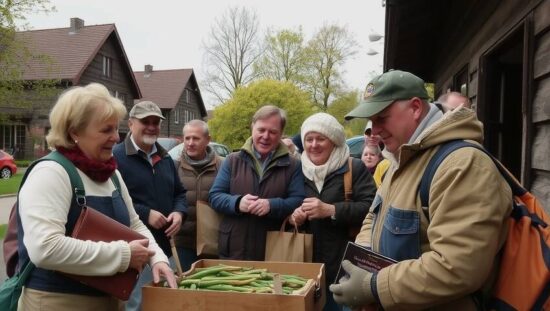Germans are willing to help. According to a survey by the polling institute YouGov on behalf of the Malteser relief organization, more than half of the respondents reported having done a good deed and helped someone in the past four weeks, with the person not being a family member or a friend.
Almost a third of the respondents said they had helped or offered help to someone in the week before the survey, and a further 23 percent in the past month. Only 7 percent said they would not offer help to someone who was not a family member or a close friend.
The types of help offered ranged from explaining the way to a stranger or carrying heavy objects (46 percent) to listening to someone in a difficult life situation (46 percent), and even included neighborhood help, digital or technical advice, and donations (29 percent and 19 percent, respectively).
Women often listened or offered emotional support, while men more frequently helped with technical issues. Women also more often asked actively if help was needed (31 percent), while men more often reacted to requests from third parties or social media.
There are also differences by age group. Those over 45 reported a higher willingness to help spontaneously (84 percent), while those between 18 and 44 more often sought out opportunities to offer help (26 percent).
According to the respondents, the willingness to help also benefits society as a whole. 86 percent said that people in a society that values friendliness would feel safer, and 86 percent believed that mutual help strengthens social cohesion. 82 percent were convinced that a good deed can trigger a chain reaction.
“We are very pleased about the great spontaneous willingness to help, which is reflected in the results of the honorary service monitor. This shows how important humanity and solidarity are for all of us” said Alexandra Bonde, vice president of the Malteser relief service.
The survey was conducted from November 29 to December 2, with around 2,100 people aged 18 and over being interviewed.





